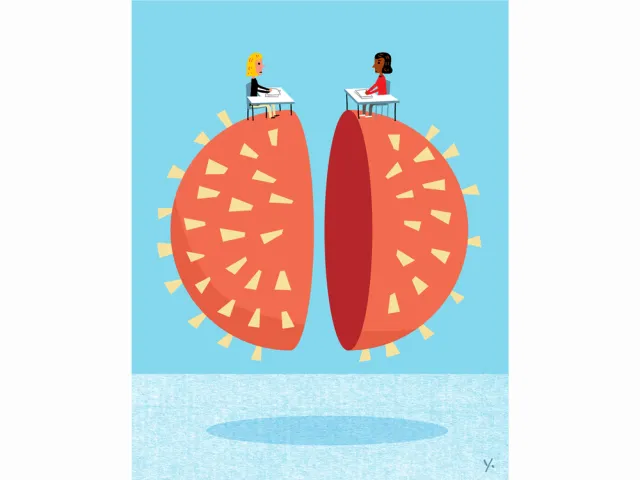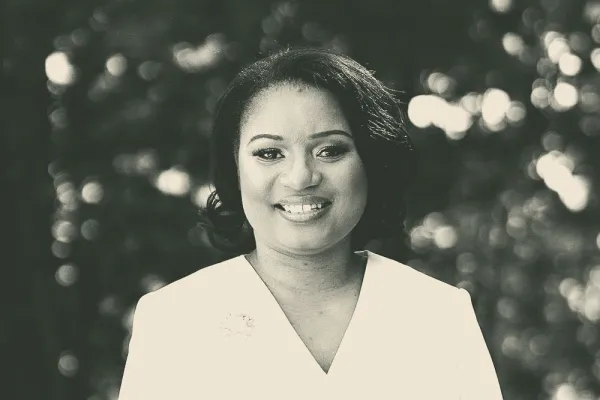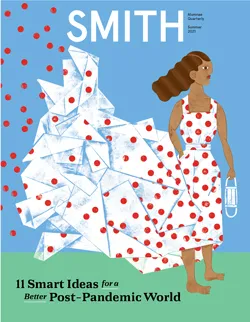‘Make Equity Your Guiding Principle From Day One’
Alum News
Published July 7, 2021
Friday, March 13, 2020, is seared in my memory and my bones. That’s the day we announced a preemptive, short-term school closure that I thought would last six weeks, at most.
Shutting down in-person classes was disruptive, for sure—it upended the lives of our scholars and their families in so many ways. But the pandemic also put a spotlight on many of the inequities that have plagued our education system for decades, and it forced us to take action. Now, as we emerge a year later, we are stronger and more resilient. Here are four lessons that shaped me and my team on this journey. I believe they could serve as a model for reshaping our school systems nationwide long after the pandemic is over.
1. MAKE EQUITY YOUR GUIDING PRINCIPLE FROM DAY ONE
My team and I learned quickly that many of our scholars did not have the tools they needed to be successful at home—we were flooded with requests for devices and Wi-Fi. To ensure equity of experience, we ordered hundreds of tablets, including ones with a stylus for our youngest learners who struggled to type on Chromebooks. For many of our families, English is not their first language, so we created a variety of trainings to help families support their children’s work. From the start, we never stopped asking: What do our scholars and families need to be successful? How are wealthier families and schools supporting their children during this transition and how can we provide the same access?
2. INVOLVE PARENTS AND FAMILIES IN YOUR DECISION-MAKING
We treated our families as true partners and empowered them to support one another within the larger school community. We created a virtual “kitchen cabinet” that included Parent-Teacher Organization executive boards to evaluate how we were doing. That crucial feedback helped us understand when to make adjustments—for example, if we were giving too much homework or not allowing enough time for scholars to submit their assignments. And for families who were experiencing acute challenges, it helped us identify and provide the community resources they needed to cut through the red tape and get the supports they required.

Illustration by James Yang
3. PARTNER WITH YOUR COMMUNITY ORGANIZATIONS By listening closely to our community, we identified critical needs that we could not meet on our own. We actively sought community partnerships and funding to support our scholars and families. I launched a collaborative group of charter school leaders in New York City to share best practices and innovations. We partnered with a local provider to establish Wi-Fi access for families who could not afford the “low rates.” We worked with the Robin Hood Foundation to provide cash payments to families who had fallen behind in rent, food and basic supplies. And our private food vendor offered meal pickups and eventually home delivery so that our children would not miss breakfast and lunch while learning at home.
4. ELEVATE AND INCLUDE YOUR STUDENTS’ VOICES
We realized that social and emotional learning would be integral to supporting all of our scholars. To address this, we increased the amount of time for morning meetings and advising so that every scholar had a chance to authentically connect with their peers and teachers, to provide in-put on ways we could strengthen their learning experience. For example, they asked us to bring back our all-school celebrations by holding them virtually, to help maintain a sense of community and school spirit. Our scholars constantly reminded us that they have something to say and that we must take the time to listen.
Janelle Bradshaw ’00 is the CEO of the Public Preparatory Network, the nation’s first and oldest nonprofit, tuition-free, single-sex elementary and middle school network in New York City. It serves over 2,000 scholars at Girls Prep, Boys Prep and PrePrep.
This story appears in the Summer 2021 issue of the Smith Alumnae Quarterly.
Read More Smart Ideas for a Post-Pandemic World
Parenting: Rachel Sturges ’02, ‘I Cherished the Intimacy That Developed From Us Being Together so Often’
Education Policy: Lisa Daniels ’12, ‘We Need More Civic-Minded People to Step Up’
Retail: Melissa Noonan ’96, ‘The Centers of Commerce Suddenly Shifted’
Photograph by Lauren Eliot

